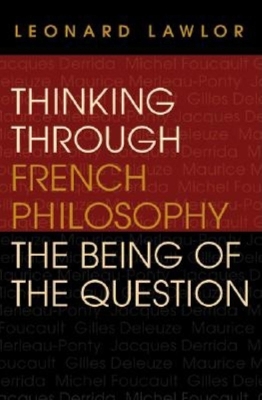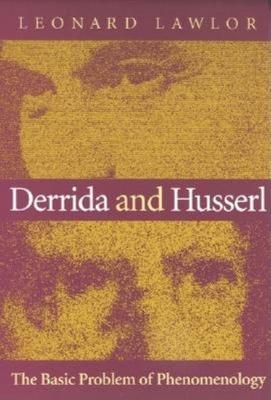Studies in Continental Thought
3 total works
". . . no other book undertakes to relate all these French philosophers to each other the way that [Lawlor] does, brilliantly." -Francois Raffoul
For many, Jacques Derrida, Michel Foucault, and Gilles Deleuze represent one of the greatest movements in French philosophy. But these philosophers and their works did not materialize without a philosophical heritage. In Thinking through French Philosophy, Leonard Lawlor shows how the work of Maurice Merleau-Ponty formed an important current in sustaining the development of structuralism and post-structuralism. Seeking the "point of diffraction," or the specific ideas and concepts that link Derrida, Foucault, and Deleuze, Lawlor discovers differences and convergences in these thinkers who worked the same terrain. Major themes include metaphysics, archaeology, language and documentation, expression and interrogation, and the very experience of thinking. Lawlor's focus on the experience of the question brings out critical differences in immanence and transcendence. This illuminating and provocative book brings new vitality to debates on contemporary French philosophy.
Lawlor's investigations of the work of Jean Cavaillos, Tran-Duc-Thao, Jean Hyppolite, as well as recent texts by Derrida, reveal the depth of Derrida's relationship to Husserl's phenomenology. Along the way, Lawlor revisits and sheds light on the origin of many important Derridean concepts, such as deconstruction, the metaphysics of presence, difference, intentionality, the trace, and spectrality. Setting the tone and direction for new approaches to Derrida, this groundbreaking work will be essential reading for anyone interested in phenomenology, French philosophy, and the catalysts of Derrida's unique thinking.
Early Twentieth-Century Continental Philosophy elaborates the basic project of contemporary continental philosophy, which culminates in a movement toward the outside. Leonard Lawlor interprets key texts by major figures in the continental tradition, including Bergson, Foucault, Freud, Heidegger, Husserl, and Merleau-Ponty, to develop the broad sweep of the aims of continental philosophy. Lawlor discusses major theoretical trends in the work of these philosophers-immanence, difference, multiplicity, and the overcoming of metaphysics. His conception of continental philosophy as a unified project enables Lawlor to think beyond its European origins and envision a global sphere of philosophical inquiry that will revitalize the field.


